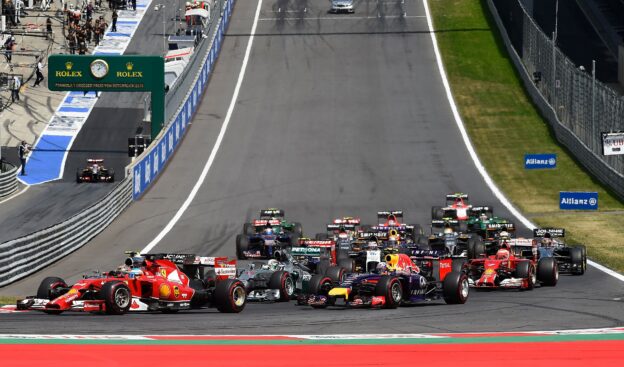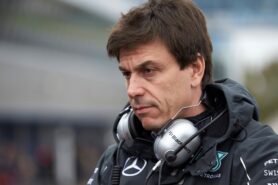Austrian Grand Prix- Talking Points

Can Rosberg wrestle back qualifying initiative?
The pattern this year has been simple: Start on pole and you will probably win the race. Okay, it sounds obvious. The guy on pole has an advantage and starts there because he is the quickest man on the track, but this year has been different.
If you start on pole in 2015, then not a lot can stop you.
True, Sebastian Vettel drove masterfully to win in Malaysia, and Nico Rosberg beat Lewis Hamilton in Monaco. But Hamilton, who started on pole, was utterly dominant in the principality and only lost due to an outrageous decision by the team to pit him when they didn’t need to.
In every race aside from Malaysia, the pole sitter has dominated the race.
So, that brings us to this weekend, where F1 returns to Austria for the second time since it arrived back on the calendar.
Qualifying is proving to be the most important part of the entire weekend, and Nico Rosberg is losing the battle.
His team-mate, Hamilton, has started on pole in six of the seven races. He strolled to victory in Australia, China, Bahrain and Canada, while he was strolling in Monaco before Mercedes cost him the win.
Hamilton leads the championship by 17 points. He is well on his way to a third world championship, and nothing seems to get in his way.
Rosberg has found that beating Hamilton on Sunday’s is impossible. With F1 how it currently is, he always has to save fuel or tyres, or even brakes. Race day is about nurturing the car home, more than gunning for a win.
Rosberg may have lost the championship to Hamilton last season, but he proved the doubters wrong and fought hard until the end.
His weapon was qualifying. He outqualified the Englishman 12-7 last season, including seven times in a row through Europe.
If the German is going to seriously trouble Hamilton this year, then he has to rediscover that blistering form.
Ferrari face Williams challenge
Williams could be destined for a profitable European summer, if their car improves as they expect it to.
The British team have been stuck in no-man’s-land so far this season; far slower than Mercedes and Ferrari ahead, but much quicker than the rest behind.
But that could be about to change, as upgrades arrive for circuits they expect to do well at.
Ferrari brought their first major upgrade to Canada last time out, but it didn’t appear to make much of a difference.
Williams are destined to close the gap to their old rivals this weekend and could seriously challenge them in qualifying.
Felipe Massa took pole here last year, and the long straights suit their car. A Ferrari vs. Williams battle, is exactly the sort of action F1 needs right now.
More embarrassment for Red Bull
The Austrian Grand Prix’s surprise return last year was ultimately down to one team: Red Bull. In their home country, the four-time champions wanted to demonstrate their superiority to their own people and show Austria off to the world.
They have achieved only one of those things.
Austria was a breath of fresh air last season (quite literally, when you consider it’s situated in the mountains), and proved to be extremely popular with both fans and drivers.
On the track, things couldn’t have gone much worse as Red Bull struggled with the new rules last season and they finished a lap down on race-winner Rosberg.
This year, it’s about to get even worse: Both drivers require a fifth engine, which automatically dumps them to the back of the grid.
It never rains, but it pours.
Austria shows F1 needs Europe
It’s a tough time to be a European host country right now. Germany has disappeared from the calendar for the first time in over 50 years, Italy is struggling to pay its fees and Belgium has always endured financial difficulties.
The heart of F1 is in danger of disappearing. France has already gone, and Bernie Ecclestone has today revealed that it won’t be coming back any time soon. Hockenheim and Nurburgring are both crippled by debt, while the iconic Monza seems almost certain to bow out.
F1’s boss will claim that it is only fair that these legendary venues pay a good price for the right to host a race, and he has a good point.
But is it fair to the fans, the drivers and the teams if these circuits are pushed away because they can’t afford the going rate?
F1 has always been a rich-man’s game. And today, it’s a rich-country’s game too. China, India, Russia, Abu Dhabi, Azerbaijan and Bahrain are just some of the rich nations who are looking to project an image of their nation for the world to see through F1.
They pay top dollar to do so, and that’s okay. They can afford it.
But F1 is being accused of losing its soul. On the track, the action has been disappointing, and fans are falling out of love with it.
The majority of F1’s audience is based in Europe. If you take away their races, then you take away their history.
History matters more than money, right?
✅ Check out more posts with related topics:
















